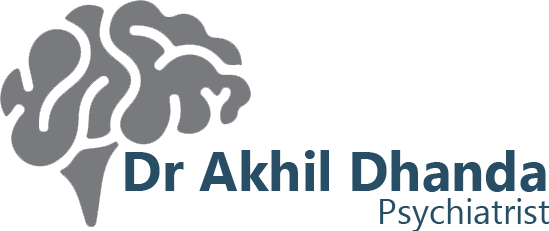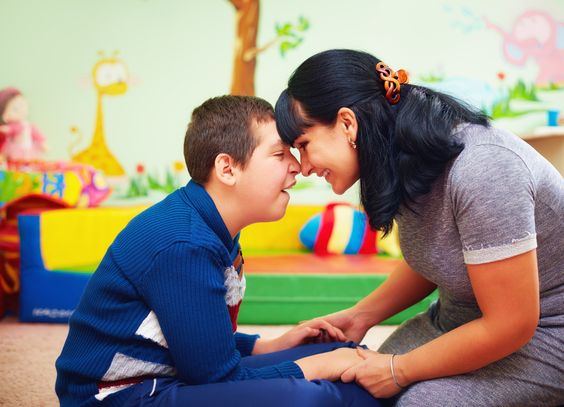Understanding Mental Retardation And How To Provide Support
Intellectual disability, previously known as mental retardation, is a developmental disorder characterized by limitations in intellectual functioning and adaptive behavior. This condition affects an individual’s ability to learn, communicate, and manage daily life tasks. Understanding intellectual disability is essential for providing effective support and promoting the well-being of individuals with the condition. In this article, we will explore the nature of intellectual disability and offer practical tips on how to provide support.
https://www.youtube.com/@akhildhanda8867
What is Intellectual Disability?
Intellectual disability is a neurodevelopmental disorder that typically manifests before the age of 18. It is characterized by deficits in both intellectual functioning and adaptive behavior:
- Intellectual Functioning: This encompasses reasoning, problem-solving, abstract thinking, and learning abilities. An individual’s intellectual functioning is often assessed through standardized tests such as IQ tests.
- Adaptive Behavior: Adaptive behavior refers to the ability to manage daily life tasks, such as communication, self-care, social skills, and practical skills. Limitations in adaptive behavior can impact an individual’s independence.
Causes of Intellectual Disability
Intellectual disability can be caused by a variety of factors, including:
- Genetic Factors: Conditions such as Down syndrome, Fragile X syndrome, and other genetic disorders can cause intellectual disability.
- Prenatal Factors: Exposure to toxins, infections, or malnutrition during pregnancy can affect the development of the fetus.
- Perinatal Factors: Complications during childbirth, such as oxygen deprivation, can lead to intellectual disability.
- Postnatal Factors: Head injuries, infections, or exposure to toxins during childhood can contribute to intellectual disability.
Early Diagnosis and Intervention
Early diagnosis and intervention are critical for individuals with intellectual disability. Early assessment allows for the development of tailored support plans that can enhance an individual’s quality of life. Key aspects of early intervention include:
- Developmental Screening: Regular developmental screenings during childhood can help identify potential delays or deficits.
- Comprehensive Assessment: If intellectual disability is suspected, a comprehensive assessment by a qualified professional can confirm the diagnosis and identify specific needs.
- Early Intervention Programs: Early intervention programs offer specialized therapies and support to promote development and learning in young children.
Providing Support
Supporting individuals with intellectual disability requires a collaborative approach involving families, educators, healthcare professionals, and community members. Here are some strategies for providing effective support:
1. Education and Training
- Special Education: Special education programs tailored to the individual’s needs can help enhance learning and development.
- Individualized Education Plan (IEP): An IEP outlines specific educational goals and support services for students with intellectual disability.
- Vocational Training: Vocational programs can help individuals develop job skills and prepare for employment.
2. Communication and Interaction
Effective Communication: Use clear and simple language when communicating with individuals with intellectual disability.
Patience and Empathy: Practice patience and empathy when interacting with individuals who may take longer to understand or respond.
Visual Aids: Visual aids, such as pictures and diagrams, can enhance understanding and communication.
3. Daily Living Skills
- Life Skills Training: Teaching daily living skills, such as personal hygiene, cooking, and money management, can promote independence.
- Assistive Technology: Devices and tools such as apps and adaptive equipment can help individuals manage daily tasks.
4. Community Inclusion
- Social Activities: Encourage participation in social and recreational activities to promote socialization and community involvement.
- Peer Support: Peer support groups can provide a sense of belonging and understanding for individuals with intellectual disability.
- Advocacy: Advocating for the rights and inclusion of individuals with intellectual disability can help create a more inclusive society.
5. Family Support and Resources
- Information and Education: Families should seek information and resources to better understand intellectual disability and available support options.
- Respite Care: Respite care provides temporary relief for caregivers and allows them to recharge.
- Counseling and Support Groups: Counseling and support groups can help families navigate the challenges of caring for a loved one with intellectual disability.
Challenges and Opportunities
While there are challenges associated with intellectual disability, there are also opportunities for growth and development:
- Changing Perceptions: Efforts to reduce stigma and promote acceptance are essential for creating an inclusive society.
- Employment Opportunities: Advocacy for employment opportunities can empower individuals with intellectual disability and contribute to their independence.
- Research and Innovation: Ongoing research and technological advancements continue to improve the quality of life for individuals with intellectual disability.
Conclusion
Understanding intellectual disability and how to provide support is crucial for enhancing the lives of individuals with the condition. By promoting early diagnosis and intervention, providing tailored education and support, and advocating for inclusion and acceptance, we can create a world where individuals with intellectual disability can thrive and reach their full potential. Through collective efforts, we can build a more inclusive society that values the contributions and abilities of all its members.
For any further queries, Plz visit psychiatristdrakhildhanda.com or you can check our social media accounts, Facebook, Instagram







